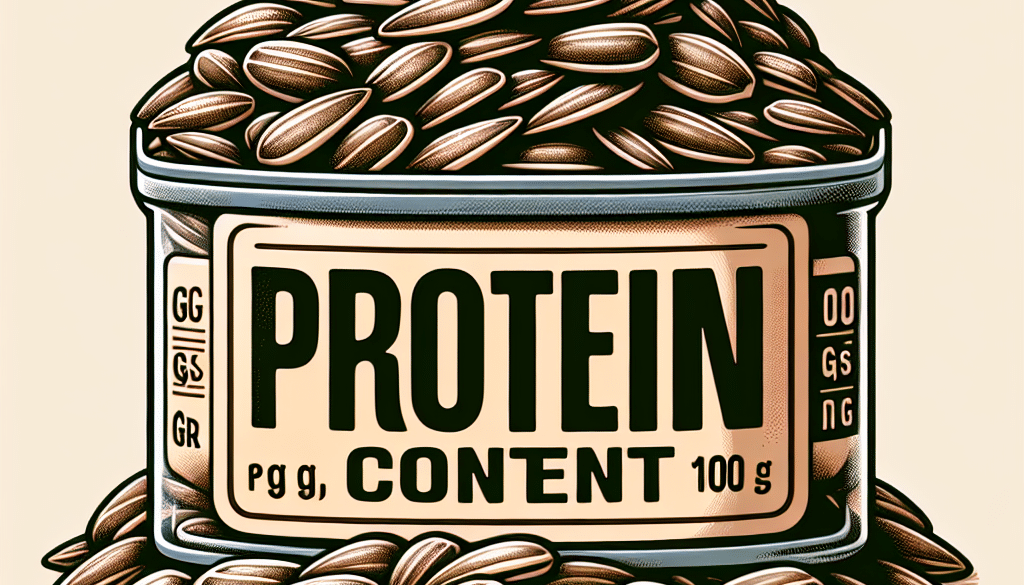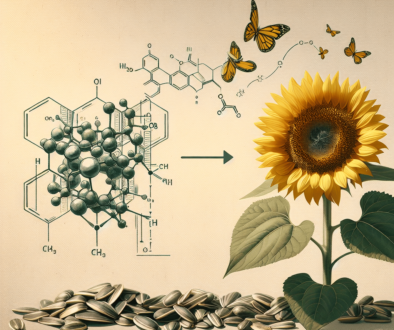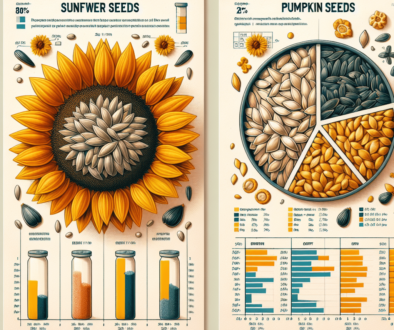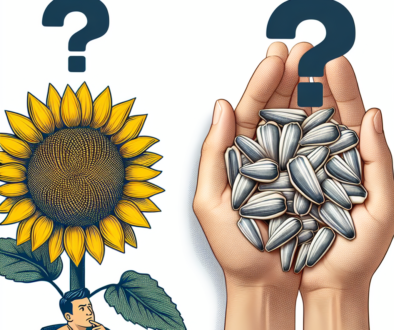100g Sunflower Seeds: Protein Content
-
Table of Contents
- Sunflower Seeds Protein Content: A Nutritional Powerhouse in 100g
- Understanding the Nutritional Profile of Sunflower Seeds
- Protein Content in 100g of Sunflower Seeds
- Other Nutritional Benefits
- Health Benefits of Sunflower Seed Protein
- Supports Muscle Health
- Enhances Satiety and Weight Management
- Improves Heart Health
- Stabilizes Blood Sugar Levels
- Incorporating Sunflower Seeds into Your Diet
- As a Snack
- In Salads and Bowls
- As a Butter or Milk
- In Baked Goods
- Comparing Sunflower Seeds to Other Protein Sources
- Case Studies and Research
- Considerations and Potential Allergies
- Conclusion: The Mighty Seed with Mighty Protein
- Discover ETprotein’s Sunflower Seed Protein Products
Sunflower Seeds Protein Content: A Nutritional Powerhouse in 100g
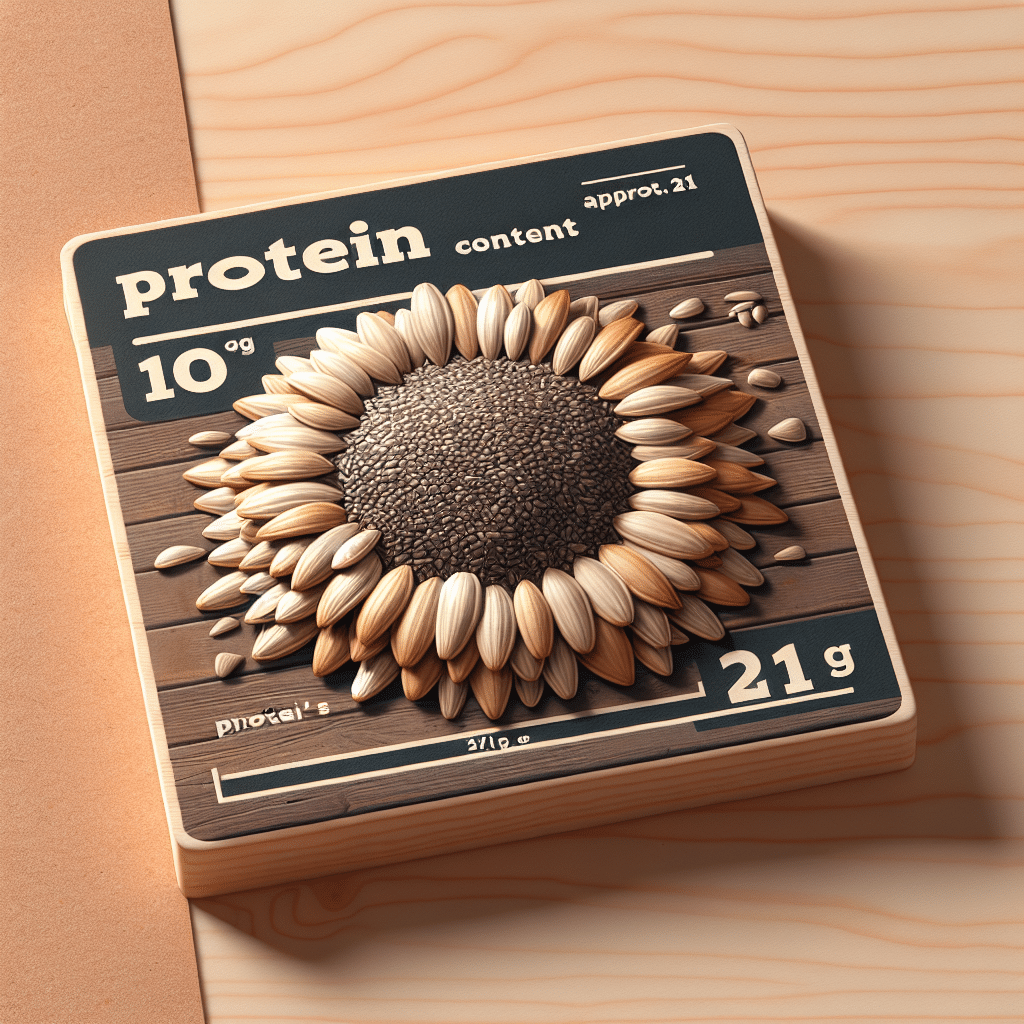
When it comes to plant-based nutrition, sunflower seeds are often overshadowed by more popular seeds and nuts. However, these tiny kernels are packed with a significant amount of protein, along with other essential nutrients that can contribute to a healthy diet. In this article, we will delve into the protein content of 100 grams of sunflower seeds and explore the benefits and implications of incorporating these seeds into your daily nutritional regimen.
Understanding the Nutritional Profile of Sunflower Seeds
Sunflower seeds come from the large flower heads of the sunflower plant. The seeds are encased in inedible black-and-white striped shells, also known as hulls. When dehulled, the edible part inside is the sunflower kernel, which is often consumed raw, roasted, or as an ingredient in various dishes.
Protein Content in 100g of Sunflower Seeds
Protein is a crucial macronutrient necessary for building and repairing tissues, making enzymes and hormones, and supporting immune function. In 100 grams of sunflower seeds, you can expect to find approximately 20 to 23 grams of protein, making them an excellent source of plant-based protein. This amount of protein is comparable to that found in some meats and dairy products, showcasing sunflower seeds as a viable protein alternative for vegetarians, vegans, and those looking to reduce their meat consumption.
Other Nutritional Benefits
Beyond protein, sunflower seeds are rich in healthy fats, particularly unsaturated fatty acids, which can help to lower cholesterol levels and reduce the risk of heart disease. They are also a good source of dietary fiber, which aids in digestion and promotes a feeling of fullness, potentially aiding in weight management.
- Vitamins: Sunflower seeds are high in vitamin E, a powerful antioxidant that protects cells from damage, and B vitamins, including thiamine, pantothenic acid, and folate.
- Minerals: They contain significant amounts of magnesium, phosphorus, potassium, zinc, iron, and selenium, all of which have various health benefits.
- Phytochemicals: These seeds are also rich in beneficial plant compounds like flavonoids and phenolic acids.
Health Benefits of Sunflower Seed Protein
The protein in sunflower seeds is not only abundant but also of high quality. It contains most of the essential amino acids, although it is slightly lower in lysine. Still, when combined with other plant proteins that have complementary amino acid profiles, sunflower seeds can help form a complete protein source.
Supports Muscle Health
Protein is essential for muscle repair and growth. Consuming adequate amounts of protein, like that found in sunflower seeds, can help maintain muscle mass, particularly important for athletes and those engaged in regular physical activity.
Enhances Satiety and Weight Management
Due to their protein and fiber content, sunflower seeds can help you feel full for longer periods, reducing the likelihood of overeating and supporting weight management efforts.
Improves Heart Health
The unsaturated fats in sunflower seeds, along with their protein content, contribute to a healthier lipid profile, which is beneficial for heart health.
Stabilizes Blood Sugar Levels
Protein has a minimal impact on blood sugar levels, making sunflower seeds a good snack option for people with diabetes or those trying to manage their blood sugar levels.
Incorporating Sunflower Seeds into Your Diet
There are numerous ways to include sunflower seeds in your diet to take advantage of their protein content and other nutritional benefits.
As a Snack
Enjoy a handful of raw or roasted sunflower seeds as a nutritious snack between meals.
In Salads and Bowls
Sprinkle sunflower seeds over salads, grain bowls, or yogurt to add a crunchy texture and a protein boost.
As a Butter or Milk
Sunflower seed butter is a great alternative to peanut butter, and sunflower seed milk can be used in place of dairy or other plant-based milks.
In Baked Goods
Add sunflower seeds to bread, muffins, or cookies for added nutrients and flavor.
Comparing Sunflower Seeds to Other Protein Sources
When compared to other plant-based protein sources, sunflower seeds hold their own. For example, 100 grams of almonds contain about 21 grams of protein, while the same amount of chia seeds has about 17 grams. Animal-based protein sources like chicken breast contain about 31 grams of protein per 100 grams, but they lack the fiber and many of the phytonutrients found in sunflower seeds.
Case Studies and Research
Several studies have highlighted the benefits of including sunflower seeds in the diet. For instance, research has shown that the consumption of nuts and seeds, including sunflower seeds, is associated with a reduced risk of cardiovascular disease and type 2 diabetes.
Considerations and Potential Allergies
While sunflower seeds are generally safe for most people, they can cause allergic reactions in some individuals. If you have a known allergy to sunflower seeds or experience symptoms after consuming them, it is important to avoid them and consult with a healthcare professional.
Conclusion: The Mighty Seed with Mighty Protein
In conclusion, 100 grams of sunflower seeds offer a substantial amount of protein along with a plethora of other nutrients. They are a versatile food that can easily be incorporated into various dishes to enhance their nutritional value. Whether you’re looking for a plant-based protein source or simply aiming to diversify your diet, sunflower seeds are an excellent choice.
Discover ETprotein’s Sunflower Seed Protein Products
If you’re interested in exploring high-quality sunflower seed protein options, ETprotein offers a range of products that cater to your needs. Their sunflower seed protein is known for its neutral taste and non-GMO, allergen-free attributes, making it an ideal ingredient for various applications.
About ETprotein:
ETprotein, a reputable protein Chinese factory manufacturer and supplier, is renowned for producing, stocking, exporting, and delivering the highest quality organic bulk vegan protein and plant proteins. They include Organic rice protein, clear rice protein, pea protein, clear pea protein, pumpkin seed protein, sunflower seed protein, mung bean protein, etc. Their offerings, characterized by a neutral taste, non-GMO, allergen-free attributes, cater to a diverse range of industries. They serve nutraceutical, pharmaceutical, cosmeceutical, veterinary, as well as food and beverage finished product distributors, traders, and manufacturers across Europe, USA, Canada, Australia, Thailand, Japan, Korea, Brazil, and Chile, among others.
ETprotein specialization includes exporting and delivering tailor-made protein powder and finished nutritional supplements. Their extensive product range covers sectors like Food and Beverage, Sports Nutrition, Weight Management, Dietary Supplements, Health and Wellness Products, and Infant Formula, ensuring comprehensive solutions to meet all your protein needs.
As a trusted company by leading global food and beverage brands and Fortune 500 companies, ETprotein reinforces China’s reputation in the global arena. For more information or to sample their products, please contact them and email sales(at)ETprotein.com today.

